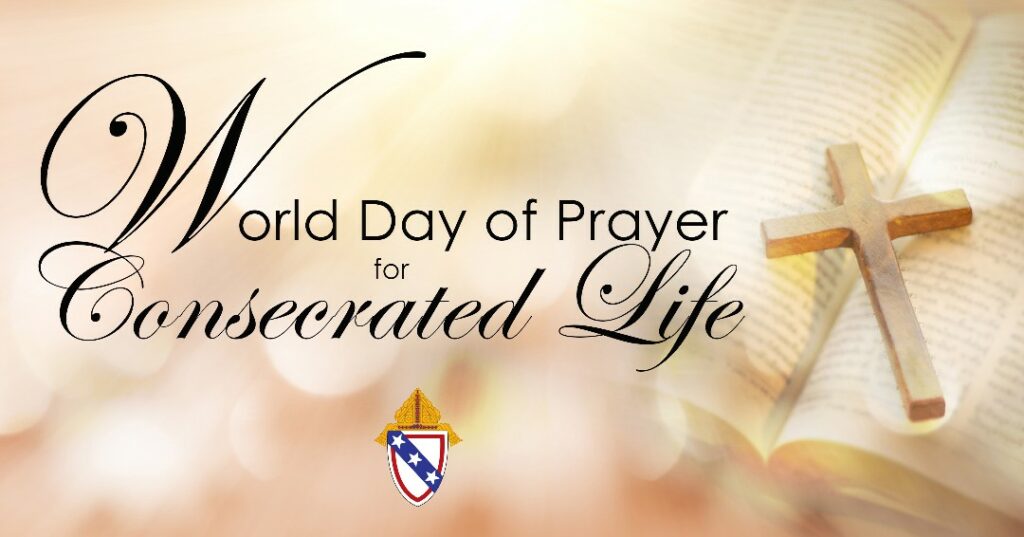In 1997, when St. Pope John Paul designated Candlemas Day, Feb. 2, as the World Day for Consecrated Life, he stated, “We should never forget that consecrated life, before being a commitment of men and women, is a gift which comes from on high, an initiative of the Father who draws his creatures to himself with a special love and for a special mission.”
Indeed, consecrated religious — the priests, sisters and brothers who belong to religious communities — are one of the many gifts God has bestowed upon our diocese throughout its history. Whether or not you personally know or have known a religious, you may well have benefited from the “special mission” each has accepted.
That mission is based upon the service that religious exemplify in a number of ways. Among the many whose charism was health care were the Daughters of Charity who nursed the wounded during the Civil War. There were the Sisters of the Holy Ghost who administered Kings Daughters Hospital in Martinsburg. The Sisters of Bon Secours operate many of our hospitals, and completing more than 145 years, the Little Sisters of the Poor have cared for the aged in Richmond. For dozens of religious communities, past and present, quality health care has been a priority.
Our diocese and parishes have been strengthened by the presence and work of religious who have taught in our schools. Benedictines in education and parish ministry, Dominicans and Youth Apostles in campus ministry, Sisters of the Blessed Sacrament, Immaculate Heart of Mary Sisters and hundreds of other dedicated religious have formed thousands of youth and young adults in the Catholic faith.
Immigrants have been welcomed and become an integral part of our faith communities due to the outreach of the Comboni Sisters in Richmond and the Franciscan Sisters of St. Joseph in Virginia Beach.
All of us benefit from the prayers offered by the cloistered communities such as the Visitation Sisters in Rockville, the Poor Clares in Barhamsville and the Trappist-Cistercian Sisters in Crozet.
Recognizing that our society is inundated with a gospel of consumerism that promotes consumption and possessions, that emphasizes acquisition of things, we welcome and appreciate the counter cultural commitment religious make. They embrace a life of poverty, simplicity and sharing all that they have with their community. Who they are and what they do is a total gift of self to God, the Church and all whom they serve.
Social media and entertainment media, along with a culture drowning in relativism, have led to objectifying the human person, seeing people as possessions, as another “thing” to be marketed and used. This has resulted in a disordered human sexuality void of dignity and love.
However, for religious, chastity is a vow and devotion whose fruitfulness, rooted in their marriage to the Lord, that focuses on the other and the eternal rather than on self and the immediate, respectively. Theirs is a life that espouses love for and dignity of the human person.
Another vow by which religious are guided, but which runs counter to what society values, is obedience. We live in a world of independence and being one’s own person. Priority is given to doing something unique and individual, something that demonstrates you are not going along with the crowd.
Obedience is a hallmark of religious life. It involves sacrifice — another concept that is fading from society’s lexicon. In being obedient, a religious might have to put part of self aside in order to foster the cooperation that is at the heart of the community — the other religious with whom one lives, works, ministers and prays.
The example of consecrated religious life is particularly important for college students and other young adults who are considering who they want to be and what they want to do with their lives. I encourage them to open their hearts to the possibility that they are being called to this vocation.
Please join me in thanking God for the presence of the more than 25 religious communities in our diocese. Their immersion in the Gospel and service to our parishes, schools, institutions and communities at large are, in fact, that “gift from high” with which we have been blessed.

